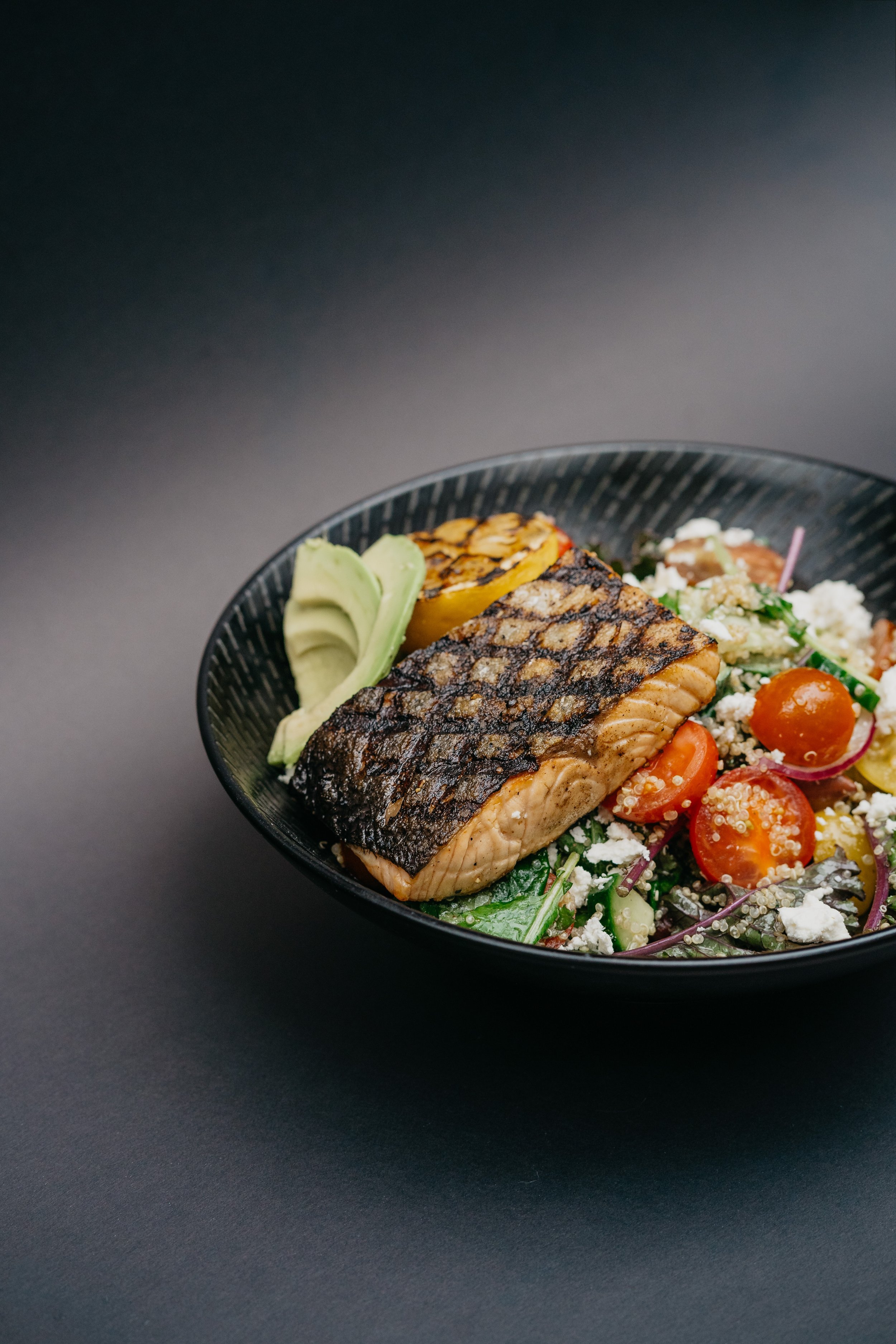nutrition and the perimenopause
“Perimenopause is in the news a lot and there is a vast amount of advice.”
I’m all for empowerment when it comes to midlife and the recent surge in interest around perimenopause and menopause is welcome. However, as with so many things, along with the frenzy of chatter and information, comes a degree of bombardment about what we should and shouldn’t be doing.
This noise can become overwhelming as we try to navigate our way through this important life stage.
“Is my weight gain due to menopause?
I think I know what I should be eating, but I can’t seem to get started! I feel I need to control things, yet I feel out of control. I’m skipping breakfast and eating salad at lunchtime, but I can’t stop eating through the afternoon and evening. Am I missing out on something by not taking herbs and supplements? What should I take? There’s too much information out there!”
These are just some of the intrusive thoughts my clients have shared with me as a consequence of wanting to be fit and healthy. So, how can we navigate our way through the crowded streets of midlife wellbeing adverts and influencer posts?
One of the major issues with outside noise is that it can undermine the engagement of our common sense and intuition.
It’s so easy to be swept away; to jump from one article or piece of advice to another, especially when we’re desperate to ‘do things better’. Pressing pause and asking, “does this make sense to me?” can be helpful.
Remember, you’re an intelligent and experienced woman. You’ve accomplished a lot in your life, so do take note of your inner voice.
The bottom line is that when it comes to health and wellbeing, it’s not rocket science. It’s not shiny or sexy either. And no matter the life stage, the same basic principles apply:
Eat as well as you can, as often as you can. This means having some protein and a little natural fat with your meals and embracing vegetables, salad items and other plant kingdom foods as much as possible.
Where possible enjoy nice, filling meals and avoid mindless grazing.
Move your body as often as you can. Walk, take the stairs, carry heavy bags and get outside frequently. Even better, do some weight training, exercise your cardiovascular system, and keep flexible by stretching a few times a week.
Prioritise sleep. See the value in going to bed at a reasonable time and return to reading a proper book made from paper, instead of scrolling through your phone to wind down.
Limit caffeinated drinks and alcohol, especially if anxiety or sleep problems are an issue for you.
If you can get these basic principles working for you for around 80% of the time, you’ll be doing a grand job and putting many of the foundations in place to support you through midlife, and beyond.
If you want to take things further, consider the stressors in your life and engage in ways to chip away at them.
The bottom line is there are no magic potions to take but the journey of embracing balanced and positive approaches to being healthy is a wonderful one, and not nearly as hard or as restrictive as you might think. In fact, it’s quite the opposite. My advice is to approach things in a very simple, one-step-at-a-time way, that’s not going to feel like another ‘all or nothing’ approach doomed to fail. Maybe just start by asking yourself, “what can I add to my life that feels doable at the moment?” You could start by adding some protein to your breakfast or some extra vegetables to your evening meal. You don’t have to do everything at once. Be kind to yourself.
We can take the pressure off ourselves by considering the value of overall dietary and lifestyle patterns over a week, month, quarter, year.
Look at your health as a long-term project. One that allows for bumps along the way, but ultimately moves you in a positive direction; that feels like a pleasure not a chore.
There is no better time than midlife to embrace the mantra ‘slow and steady wins the race’. After all, you are only halfway through your life. Let’s make the second half one that you can fully enjoy, and feel free in.
If you’d like help with understanding what’s going on with your hormones, I offer a Hormone Insights & Support Service. It provides functional hormone testing with interpretation and advice for women ready to understand their bodies, take charge of their health, and feel empowered to thrive through every stage of life. Gain clarity, practical guidance, and personalised support to unlock the key to balanced hormones and renewed well-being.





